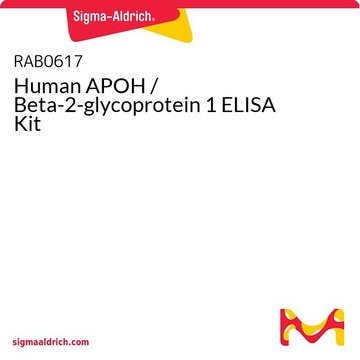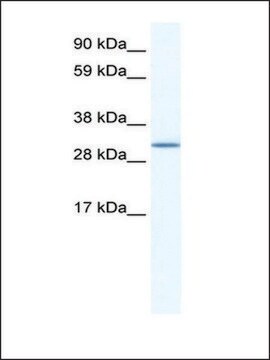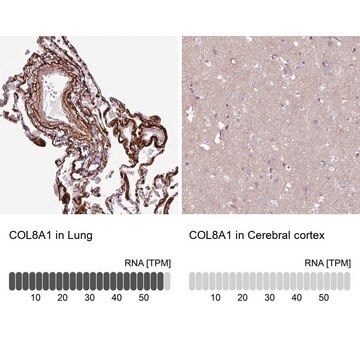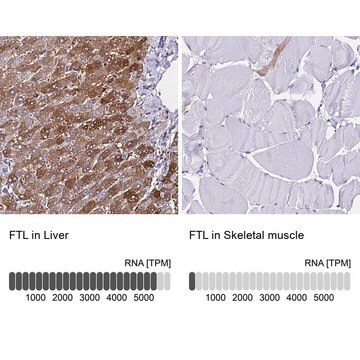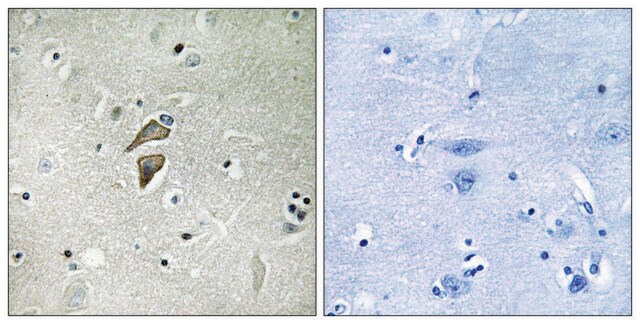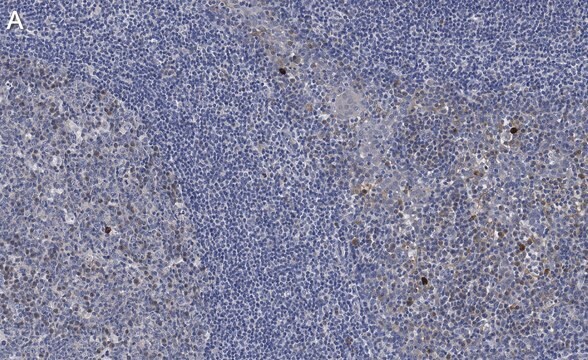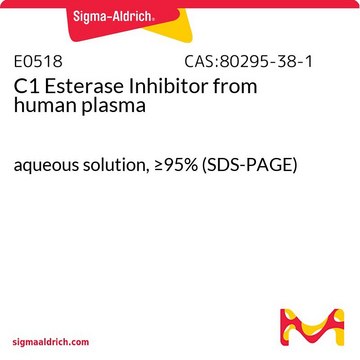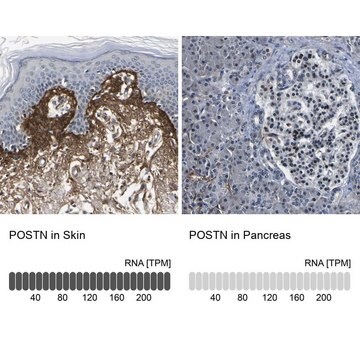MAB1820
Anti-Scribble Antibody
clone 7C6.D10, Chemicon®, from mouse
Synonym(s):
Scrib, LAP4
Sign Into View Organizational & Contract Pricing
All Photos(1)
About This Item
UNSPSC Code:
12352203
eCl@ss:
32160702
NACRES:
NA.41
Recommended Products
biological source
mouse
Quality Level
antibody form
purified antibody
antibody product type
primary antibodies
clone
7C6.D10, monoclonal
species reactivity
human
manufacturer/tradename
Chemicon®
technique(s)
western blot: suitable
isotype
IgG1κ
GenBank accession no.
UniProt accession no.
shipped in
wet ice
target post-translational modification
unmodified
Gene Information
human ... SCRIB(23513)
General description
Scribble is a tumor suppressor marker first discovered in Drosophila that has been implicated in the control of cell proliferation, polarity, invasion, and metastasis (Humbert, et al, 2003). Mammalian Scribble expresses basolateral staining in epithelial tissue and highly polarized expression in T lymphocytes (Dow, et al, 2003) (Ludford-Menting, et al, 2005), and plays an essential role in the regulation of the polarity specifically involved in directed epithelial migration. Altered expression of human Scribble is associated with invasive epithelial cancers, however, its role in tumour development remains unclear (Dow, et al, 2007).
Specificity
Predicted to cross react with mouse based on sequence homology. Reactivity with other species has not been tested.
Immunogen
Epitope: PDZ2 domain of Scribble
GST-tagged fusion protein corresponding to the PDZ2 domain of Scribble
Application
Suggested dilutions:
Western blot: 0.2 µg (1:2000)
Western blot: 0.2 µg (1:2000)
Research Sub Category
Tumor Markers
Cytoskeleton
Tumor Markers
Cytoskeleton
This Anti-Scribble Antibody is validated for use in WB for the detection of Scribble.
Quality
Routinely evaluated by Western blot on HeLa cell lysates.
Target description
220 kDa
Physical form
Format: Purified
Purified in PBS containing with 0.05% NaN3.
Storage and Stability
Maintain at 2-8°C for up to 1 year after date of receipt.
Other Notes
Concentration: Please refer to the Certificate of Analysis for the lot-specific concentration.
Legal Information
CHEMICON is a registered trademark of Merck KGaA, Darmstadt, Germany
GenBank is a registered trademark of United States Department of Health and Human Services
Not finding the right product?
Try our Product Selector Tool.
Storage Class Code
12 - Non Combustible Liquids
WGK
WGK 2
Flash Point(F)
Not applicable
Flash Point(C)
Not applicable
Certificates of Analysis (COA)
Search for Certificates of Analysis (COA) by entering the products Lot/Batch Number. Lot and Batch Numbers can be found on a product’s label following the words ‘Lot’ or ‘Batch’.
Already Own This Product?
Find documentation for the products that you have recently purchased in the Document Library.
L E Dow et al.
Oncogene, 26(16), 2272-2282 (2006-10-18)
Altered expression of human Scribble is associated with invasive epithelial cancers, however, its role in tumour development remains unclear. Mutations in Drosophila Scribble result in loss of polarity, overproliferation and 3D-tumourous overgrowth of epithelial cells. Using complementation studies in Drosophila
Mandy J Ludford-Menting et al.
Immunity, 22(6), 737-748 (2005-06-21)
T cell shape is dictated by the selective recruitment of molecules to different regions of the cell (polarity) and is integral to every aspect of T cell function, from migration to cytotoxicity. This study describes a mechanism for the regulation
Lukas E Dow et al.
Oncogene, 22(58), 9225-9230 (2003-12-19)
Scribble (scrib), discs large (dlg) and lethal giant larvae (lgl) encode proteins that regulate cell polarity and have been identified as neoplastic tumour suppressor genes in Drosophila melanogaster. Here, we have used the Drosophila model system to provide the first
Patrick Humbert et al.
BioEssays : news and reviews in molecular, cellular and developmental biology, 25(6), 542-553 (2003-05-27)
Dlg (Discs large), Scrib (Scribble) and Lgl (Lethal giant larvae) are evolutionarily conserved components of a common genetic pathway that link the seemingly disparate functions of cell polarity and cell proliferation in epithelial cells. dlg, scrib and lgl have been
Our team of scientists has experience in all areas of research including Life Science, Material Science, Chemical Synthesis, Chromatography, Analytical and many others.
Contact Technical Service